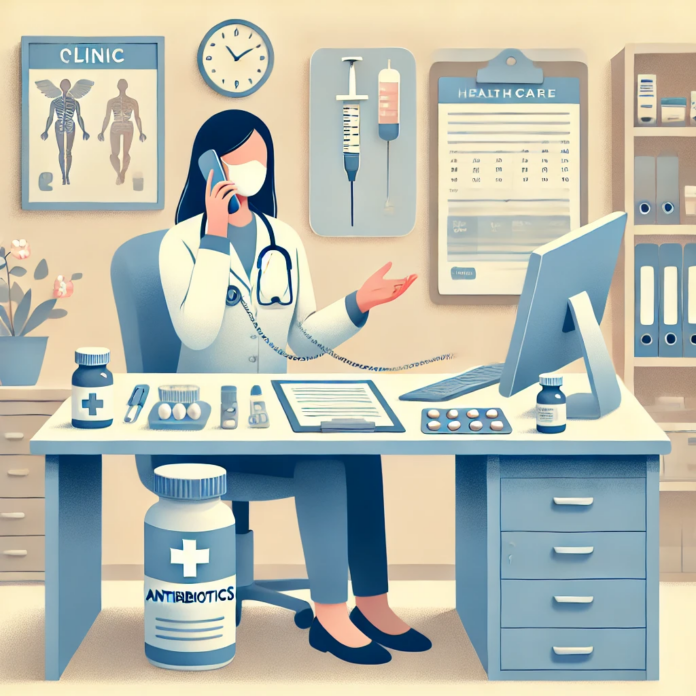When My Sister Called Me About Her Son’s Infection
As a nurse, I often get phone calls from friends and family asking for advice or explanations about medical situations. But when my sister, who lives in another state, called me last week, it wasn’t just a question—it was frustration.
Her son had developed a nasty infection in his finger. It swelled up with pus, turned black under the nail, and eventually required a visit to the doctor. The nurse there drained the pus with a syringe and started him on antibiotics. So far, everything made sense.
But then she told me something that gave her pause: The nurse had handed her son one dose of antibiotics and said the rest of the pills were supposed to be thrown away. “But,” the nurse added cryptically, “I’ll leave them on the table, and you can do what you want with them.”
At first, my sister was confused—then outraged. “Why would they throw away perfectly good medicine?” she asked. “It seems so wasteful!”
I understood her reaction. As someone who’s worked in healthcare, I know these rules well—but I also know they’re not always easy to explain. And hearing how the nurse handled the situation made me realize that other patients might be just as puzzled. So, let me break it down.
Why Do Nurses Throw Away Unused Antibiotics?
The short answer is: It’s about patient safety and regulations. But the full explanation is a bit more complicated. Here’s the breakdown:
1. It’s the Law: Strict Regulations Around Medication Handling
In clinics, hospitals, and other healthcare settings, nurses and doctors are bound by federal and state laws about how medications are dispensed and stored. These regulations are designed to ensure:
• Proper Dosing: Patients only receive the amount of medication they need for their specific condition.
• Safety: Leftover pills can’t be reused because there’s no way to guarantee they haven’t been contaminated or tampered with.
• Accountability: Healthcare facilities have to document every pill they use to prevent theft, misuse, or errors.
For this reason, facilities often dispose of medications after administering a single dose. Even if it seems wasteful, this ensures the medication can’t be mishandled.
2. Preventing Antibiotic Resistance
Antibiotics are a special case. Infections like the one my nephew had can be serious, and antibiotics are vital for treatment. But they also come with risks—specifically, the rise of antibiotic resistance.
Antibiotic resistance occurs when bacteria evolve to withstand the drugs designed to kill them. One of the biggest causes? Misuse and overuse of antibiotics. That’s why:
• Clinics are careful about giving out just enough medication to treat the infection.
• Patients are instructed to follow their prescribed course exactly—no skipping doses, and no taking “leftovers” later for a different issue.
Facilities like my sister’s clinic may be extra cautious, opting to dispense only a single dose to ensure the medication is used properly.
3. Legal and Liability Concerns
Healthcare workers have to think about the worst-case scenario. What if leftover antibiotics are taken by the wrong person? Or what if my nephew’s family decided to take the extra pills later for a different illness, leading to complications or resistance?
By throwing away the unused portion, clinics reduce their liability. This also protects them from potential lawsuits if something goes wrong.
4. Why Not Give Exact Doses?
You might wonder why clinics don’t simply dispense the exact number of pills a patient needs. The answer is often logistical:
• Clinics buy medications in bulk, which means the pills aren’t pre-packaged for individual patients.
• Counting out and repackaging pills for each person would require additional time, resources, and certifications.
• Pharmacies, not clinics, are typically responsible for filling full prescriptions. Clinics often administer the first dose only and then direct patients to pick up the remainder at a pharmacy.
5. The Cost of Waste
My sister wasn’t wrong to be frustrated by the waste. Medication disposal is a significant issue in healthcare:
• In the U.S. alone, millions of dollars worth of unused medications are discarded each year.
• Some states and countries are exploring solutions like drug recycling programs to address this problem, but these programs are still rare.
For now, the system prioritizes patient safety and compliance with regulations over efficiency.
Was the Nurse in the Wrong?
The nurse who treated my nephew likely left the extra pills “on the table” as a workaround. While she couldn’t officially give out the remaining antibiotics, she may have felt uncomfortable discarding them. Many healthcare workers share patients’ frustrations about waste but are required to follow strict rules.
What Could Be Done Better?
If you’ve ever found yourself in a situation like my sister’s, here are a few ways the process could be improved:
1. Smarter Packaging: Clinics could use single-dose or pre-measured packaging to avoid waste.
2. Clearer Communication: Nurses and doctors should explain why medications are handled this way, so patients aren’t left confused or upset.
3. Policy Changes: Advocating for policies that allow unused, uncontaminated medication to be redistributed or recycled could save money and resources.
The Bigger Picture
As frustrating as it may seem, the system is designed to prioritize safety and prevent misuse. While it’s far from perfect, these rules exist to protect patients like my nephew from potential harm.
When my sister hung up the phone, she still wasn’t thrilled about the waste, but she understood why it happens. And now, I hope you do too!
Disclaimer:
This article is intended for informational purposes only and does not constitute medical advice. The scenarios and explanations provided are based on general healthcare practices and regulations, which may vary by region, facility, and specific circumstances. Readers should consult with licensed healthcare professionals for guidance tailored to their individual situations. The author and publisher disclaim any liability for actions taken based on the information presented in this article.




